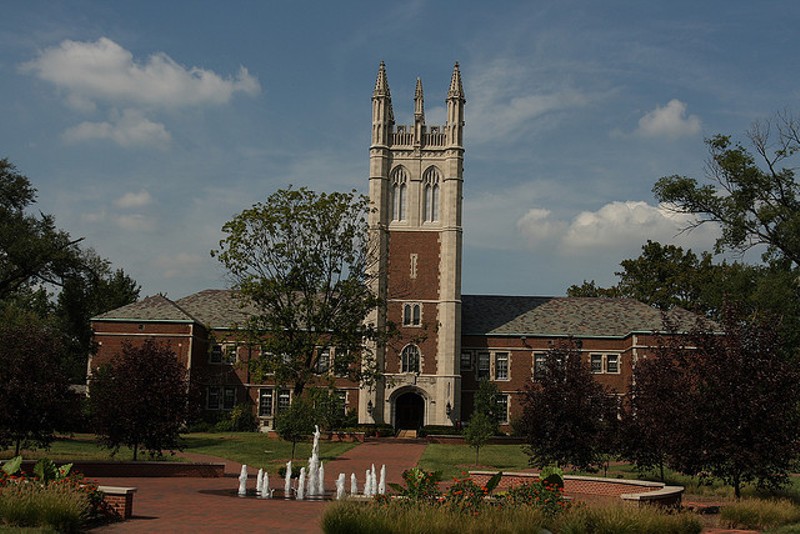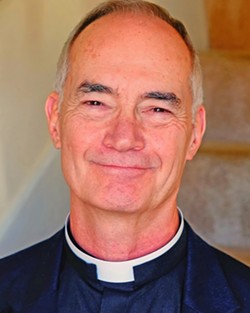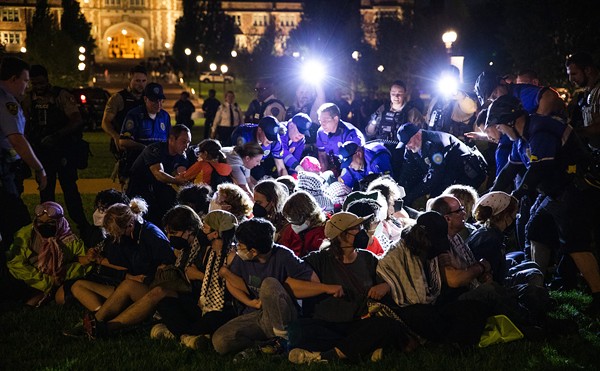
Photo courtesy of Flickr/Matthew Black
Eden Theological Seminary will be the new headquarters for Ecumenical Catholic Communion, or ECC.
Can you be passionate about ordaining women priests, support gay marriage, hold your wedding outdoors and still call yourself "Catholic"?
Folks in the Ecumenical Catholic Communion (ECC) do.
The ECC is not a huge denomination, nationally. It claims about 10,000 adherents at 51 parishes in 20 different states. But this American church that worships with a very similar liturgy to Roman Catholics is not exactly fly-by-night, either: It traces its origins to a group of Europeans who split off from Rome in 1870 by refusing to recognize the infallibility, or supreme spiritual authority, of the pope.
These days, it's using the Roman Catholic church's unpopular stances on social issues to carve out room for itself. And on September 18, the ECC is moving its headquarters from Los Angeles to Eden Theological Seminary in Webster Groves, because its new national leader, Reverend Frank Krebs, is a St. Louisan.
Krebs has an interesting bio.
Now 68, Krebs grew up in St. Mary Magdalen parish in Brentwood and attended St. Louis University High School. After studying at Kenrick Seminary, he was ordained into the Archdiocese of St. Louis in 1972 and served as a parish priest for about 18 years, with a final posting in Soulard. But in 1990, Krebs — a gay man — left the church.
"It wasn't that I didn't love being a priest," he says. "I just didn’t think i was going to be able to keep living as a celibate."
Employed as a management consultant with a local behavioral health firm, he began dating. He met and married his partner, Art.
By the early aughts, he was a quiet regular at mass at a Roman Catholic parish in the Shaw neighborhood, where he got to know the pastor. On Easter Sunday in April 2004, the pastor was overwhelmed by the large crowd. He asked Krebs to help hand out the communion wafers. The former priest shyly declined, but the pastor insisted. So Krebs did it.
"I distributed communion to hundreds of people — my arm was sore!" he recalls. "And on the inside — it’s hard to explain an experience like that. I just felt, 'I need to get back to this.' And I didn’t say anything to Art. So later, we were doing chores after breakfast and he said, 'Frank, I just want you to know that I get it.' And I said, 'Get what?' And he said, 'When you were distributing communion, I’d never seen you so happy. Whatever was going on inside you in that moment, I want to support it.'"
After several months of researching his options, Krebs decided to open a local parish under the ECC. It's called Saints Clare and Francis. Krebs says it started out in 2005 with about 20 people. Today, it has 125 registered members.
In terms of core beliefs and rituals, the ECC is pretty closely aligned with Roman Catholicism. One notable difference, however, is its inclusive nature: Gay couples are fully welcome. Divorced people are, too — even if they remarry. And married people (gay or straight) can become ordained into the priesthood. (One of the ECC's St. Louis priests, Jessica Rowley, is a married mother of three who was featured in Newsweek in 2007.)
That's not to say anybody can become an ECC priest. You need a Master's in Divinity and must pass a series of psychological and criminal background checks, Krebs says.
The inclusive nature of the ECC may be what draws people to Sts Clare and Francis, but that's not really the "focus" of the church, Krebs says.
"It’s about our faith," he says, "and learning how to love each other in practical ways and working for social justice." He pauses. "Did I sound preachy right there?"
Well yes, we reply. But you are what you are.
Krebs will take the reins at 6:30 p.m. on September 18 in the Eden Theological Seminary chapel.






